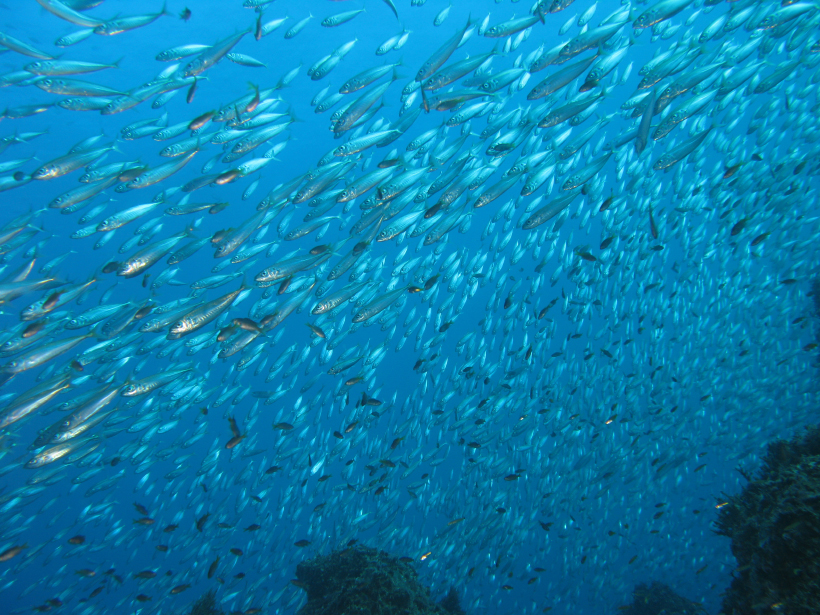Source: Geophysical Research Letters
From southern British Columbia to Baja California, the California Current transports cold water southward for 3000 kilometers along North America’s West Coast. Upwelling of deep water driven by alongshore winds regularly replenishes nutrients in this current, promoting the growth of plants that provide the basis for one of the planet’s most lucrative commercial fisheries.
How these upwelling-promoting winds will vary in response to anthropogenic climate change has been the subject of much debate. Despite empirical evidence suggesting that the alongshore winds have intensified in recent decades, projections of future trends have been limited by the inability of many climate models to distinguish human-caused change from internal climate variability. To address this issue, Brady et al. estimate changes in California Current upwelling using a single climate model ensemble that uses the same model and emissions scenario to address the affects of human-caused climate change relative to the system’s internal variability.
The results of the simulations, which span the period from 1920 to 2100, project that anthropogenic climate change will intensify upwelling in the California Current’s northern region during the spring and weaken it in the central and northern regions throughout most of the summer. Although the simulations also suggest the upwelling will decrease during part of the summer in the south, that region does not have as clear a seasonal shift. Because of the system’s internal climate variability these human-caused trends will not become clearly evident until the second half of the 21st century, the researchers report.
These findings, which contrast with the established hypothesis that anthropogenic climate change will intensify the upwelling-promoting winds, have important ecological implications. Projections of a more intense upwelling transition could affect any top predators particularly sensitive to the availability of prey in spring, whereas the projected reduction in the total amount of seasonal upwelling would likely have broad influence on life in the region. The study illustrates the importance of considering the effects of internal climate variability when assessing climate change’s effects on economically and ecologically vital ecosystems like the California Current. (Geophysical Research Letters, https://doi.org/10.1002/2017GL072945, 2017)
—Terri Cook, Freelance Writer
Citation:
Cook, T. (2017), How will climate change affect the California Current upwelling?, Eos, 98, https://doi.org/10.1029/2017EO075609. Published on 15 June 2017.
Text © 2017. The authors. CC BY-NC-ND 3.0
Except where otherwise noted, images are subject to copyright. Any reuse without express permission from the copyright owner is prohibited.

